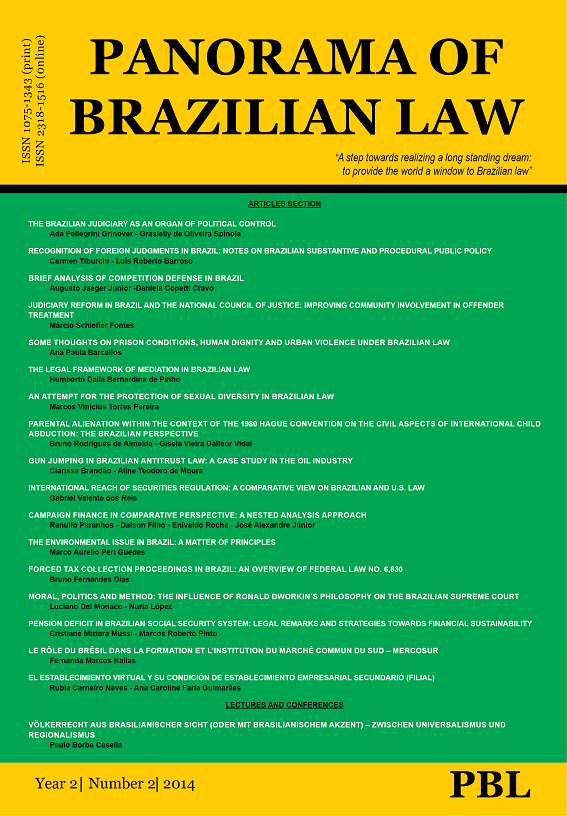JUDICIARY REFORM IN BRAZIL AND THE NATIONAL COUNCIL OF JUSTICE: IMPROVING COMMUNITY INVOLVEMENT IN OFFENDER TREATMENT
DOI:
https://doi.org/10.17768/pbl.y2.n2.p69-90Περίληψη
This paper intends to provide an overview of the Brazilian judicial system, its recent reform, and how the National Council of Justice (whose creation was the major goal of that reform) started to address the issues of improving the efficiency of criminal justice and increasing the use of alternatives to detention and imprisonment. The concept behind applying and enforcing convictions aims to remove the convict from society, to avoid further harm, allowing the prisoner to return to society after they have reabsorbed social values. The current challenge facing prison systems is to foster effective methods of rehabilitating and reintegrating these people into society, so that they are capable of living in society when they have finished their sentences. Community involvement in offender treatment is a current worldwide trend that has found the desirable echo in important initiatives championed by the National Council of Justice.
Λήψεις
Δημοσιευμένα
Πώς να δημιουργήσετε Αναφορές
Τεύχος
Ενότητα
Άδεια
Panorama of Brazilian Law employs Open Journal Access policies.
Authors are fully and exclusively responsible for their submissions.
Authors who publish with this journal agree to the following terms:
- Authors retain copyright and grant the journal right of first publication with the work simultaneously licensed under a Creative Commons Attribution-NonCommercial-ShareAlike 4.0 International License that allows others to share the work on a non-comercial basis with an acknowledgement of the work's authorship and initial publication in this journal and indicating if any changes were made. If you remix, transform, or build upon the material, you must distribute your contributions under the same license as the original.
- Authors are able to enter into separate, additional contractual arrangements for the non-exclusive distribution of the journal's published version of the work (e.g., post it to an institutional repository or publish it in a book), with an acknowledgement of its initial publication in this journal.

